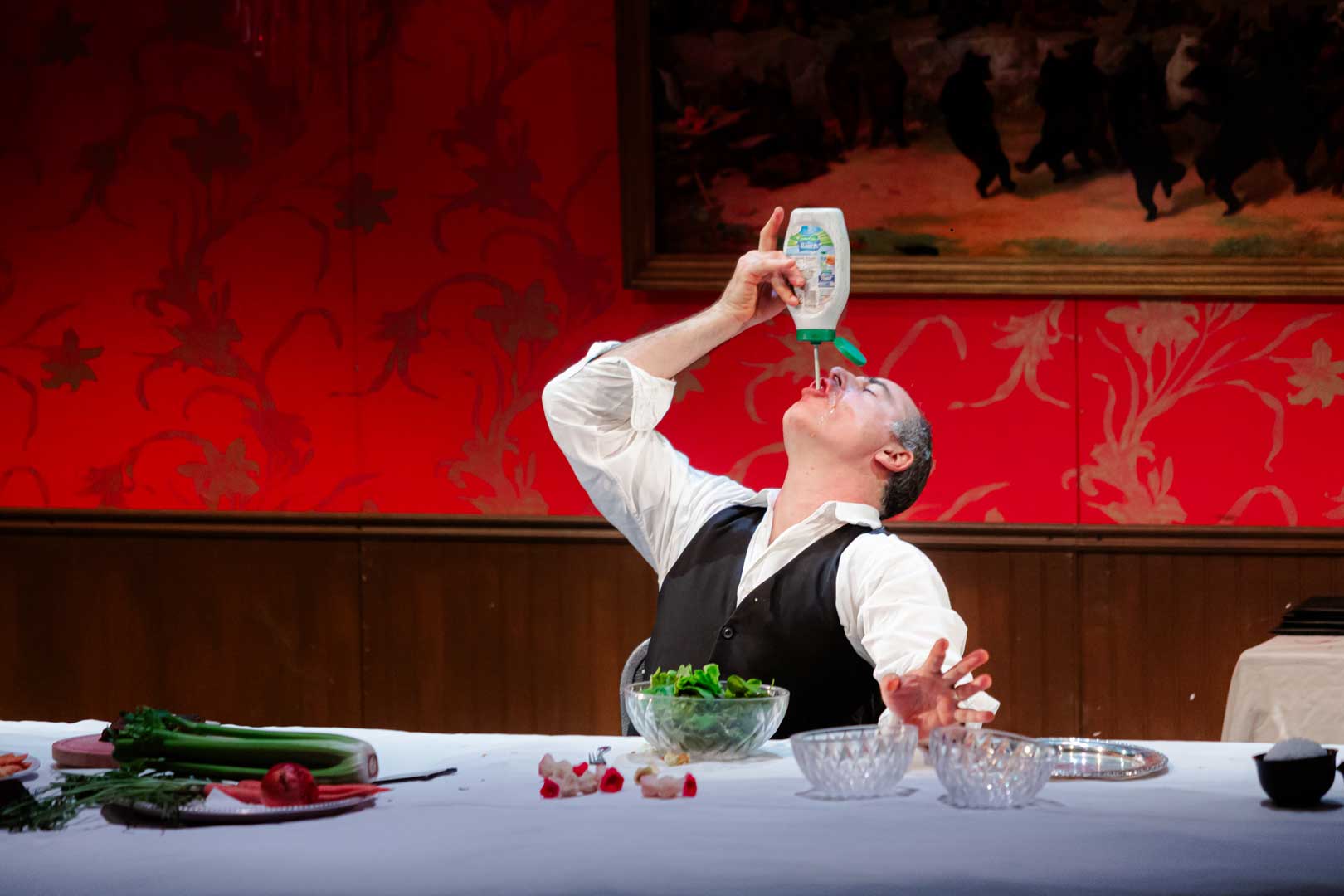
In response to Food
In response to Food
“Why Don’t We Do It in the Road?” - The Beatles
Behavioral scientists have discovered that some apes use social norms that are the inverse of ours. The chimpanzee, for instance, will mate shamelessly in front of its peers, but treats food as a private matter––something to be enjoyed in a secluded place, alone. Meanwhile the human establishes elaborate holidays in order to eat in the presence of its family, invents the communal cafeteria, cannot be left alone in a restaurant. And has sex with double locks on the doors.
I sometimes wonder what would have happened if our world was a world of chimpanzees. We would do it in the road––in any manner of public places, whenever the need took hold of us. And someone might lock their bedroom door after a long day of work before sitting down and eating a bowl of bean chili. They might spend a while indecently relishing the cilantro and the tomatoes, savoring the crunch of tortilla chips, bursting with good food emotion, feeling at that moment that this bean chili was the only important thing in the universe. We might write songs about food and then laugh when they played on the radio.
To me, food always seemed so necessary and so unimportant. Some food tastes good, and some tastes bearable, but it’s all headed for one purpose––to be broken down into little molecular pieces and then absorbed by hungry intestinal lacteals and villi and whatever else, all so I might stay alive. A month ago, though, I began to understand how the chimpanzee appetite operates. And this happened when I stopped thinking about food and instead began pondering FOOD.
“FOOD” was the name of an interactive intellectual magic show––and the most bizarre thing I have ever seen. It was showing for a week at Nashville’s artsiest performance space, and I had a writing fellowship there. I had to go see it, so that I could be artistically fueled somehow and write a creative response to be featured on their Instagram.
I had two tickets to what I advertised to friends and family as “some weird food show,” but no one wanted to come, so I went to see it alone. I drove by myself, bored, to the industrial corner of North Nashville where an old factory had been converted into the playhouse. I entered the theater––odd: the entire stage had been converted into one huge table, and audience members were sitting in seats around it, with plates and glasses set in front of them. I sat nearby and waited for something to happen.
The ninety-minute spectacle that ensued was somehow indecent. Originally we––leading man and audience––play-acted a restaurant, with us as his customers, ordering off menus and receiving strange ingredients in return. And then the lights dimmed, and the leading waiter of our restaurant sat down in front of us, tired after a long day of work––and ate.
He chewed thoughtfully on one apple, spun it in his fingers, and polished it to the core. He picked up another apple, ate it quickly, and then downed a bowl of eight more. He polished off a bowl of rice, and another, and another. He popped twenty carrots into his mouth and swallowed them whole. He ate steak, baked potato, an intact bunch of celery. He lit a cigarette, examined it, pushed it experimentally down his throat, discovered that it could be eaten, and downed an entire box of them. He took the lit candle beside him and gorged on it; we watched its still-glowing tip disappear down his throat. He ate his phone. He ate his fork. He was at turns ravenous, rapturous, careful, and slinkily sultry. I felt almost like a voyeur watching him. He spun a bowl of raw eggs in his hands and then slurped up their yellowish syrup lovingly. I sat by myself in the theater, unaccompanied, shamefaced, for suddenly it was just him and me, and I was witnessing sights primal and pleasurable. The thing was too private.
Why don’t we do “it” in the road? Maybe we do. Watch someone next time they walk down the street sucking a peppermint or biting into a cookie. In that moment they may be experiencing the implosion of a thousand suns, the euphoric expansion of the universe, the rebirth of a carnal cosmic purpose. Food––FOOD––primal and pleasurable and private.


